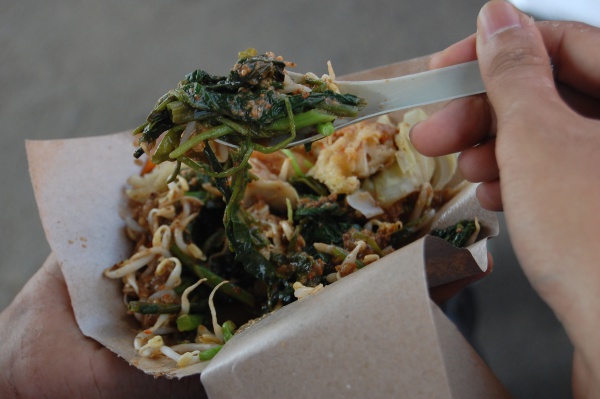Facts About Pecel
Pecel is a cherished traditional salad from Java, Indonesia, featuring an assortment of vegetables tossed in a savory peanut sauce. It is typically enjoyed with steamed rice or compressed rice cakes such as lontong or ketupat. While its peanut sauce bears similarities to that of gado-gado, another Indonesian salad, pecel's version omits coconut milk, resulting in a distinct flavor. Pecel is part of Javanese cuisine, whereas gado-gado is more closely associated with Betawi and Sundanese culinary traditions.
You can prepare pecel at home or find it in Javanese restaurants and warungs (small eateries). There are also itinerant vendors, known as Mbok bakul pecel, who carry all the ingredients in woven bamboo baskets and sell this delectable dish in neighborhoods, markets, and even train stations. Its easy preparation, low cost, and association with travel have made pecel a beloved dish across Java.
Interestingly, pecel made its way to Malaysia with Javanese immigrants and is also popular in Suriname, thanks to Javanese Surinamese communities. While the exact origins of pecel are somewhat ambiguous, it has been a staple in Java for centuries. The term "pecel" appears in ancient texts, referring to a method of food preparation involving the application of a substance over the main ingredient. Over time, the dish has evolved and now features a variety of vegetables and sauces.
Typically, pecel includes boiled or blanched vegetables such as water spinach, bean sprouts, cucumber, and lemon basil. These are combined with a delightful sauce made from ground fried peanuts, water, salt, palm sugar, tamarind juice, chili pepper, galangal, kaffir lime leaf, and garlic. To make it even more satisfying, pecel is often served with side dishes such as fried tempeh or tofu, perkedel kentang (potato fritters), bakwan jagung (corn fritters), crispy rempeyek peanut crackers, or krupuk (crackers).
Different regions in Java have their own interpretations of pecel, tweaking ingredients like kaffir lime leaf zest, galangal, palm sugar, or tamarind juice to create unique flavors. Madiun and Ponorogo in East Java are particularly renowned for their versions of pecel. Nowadays, you can find this tasty dish in most Javanese villages and cities, continuing to delight locals and visitors alike.

 Malaysia
Malaysia